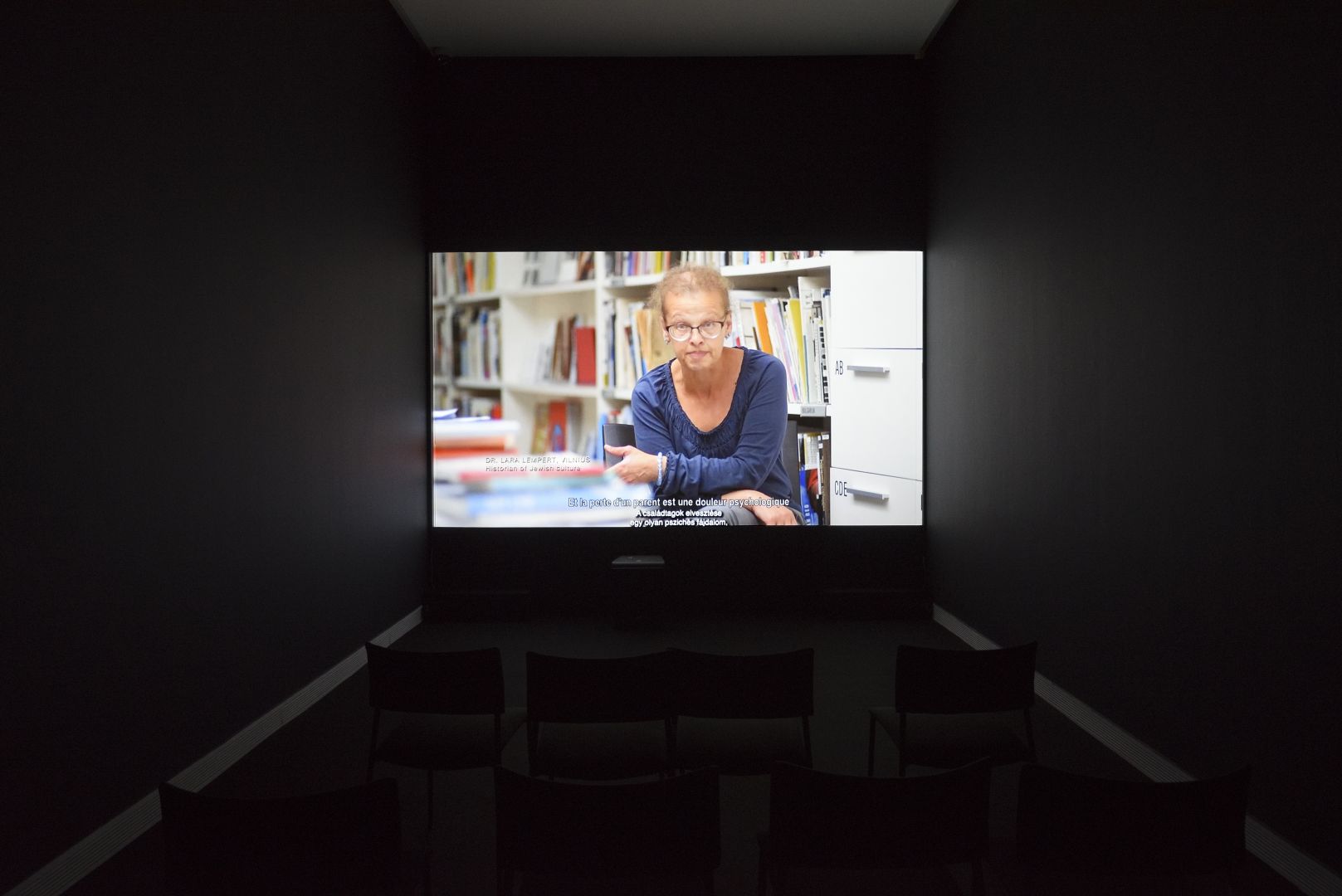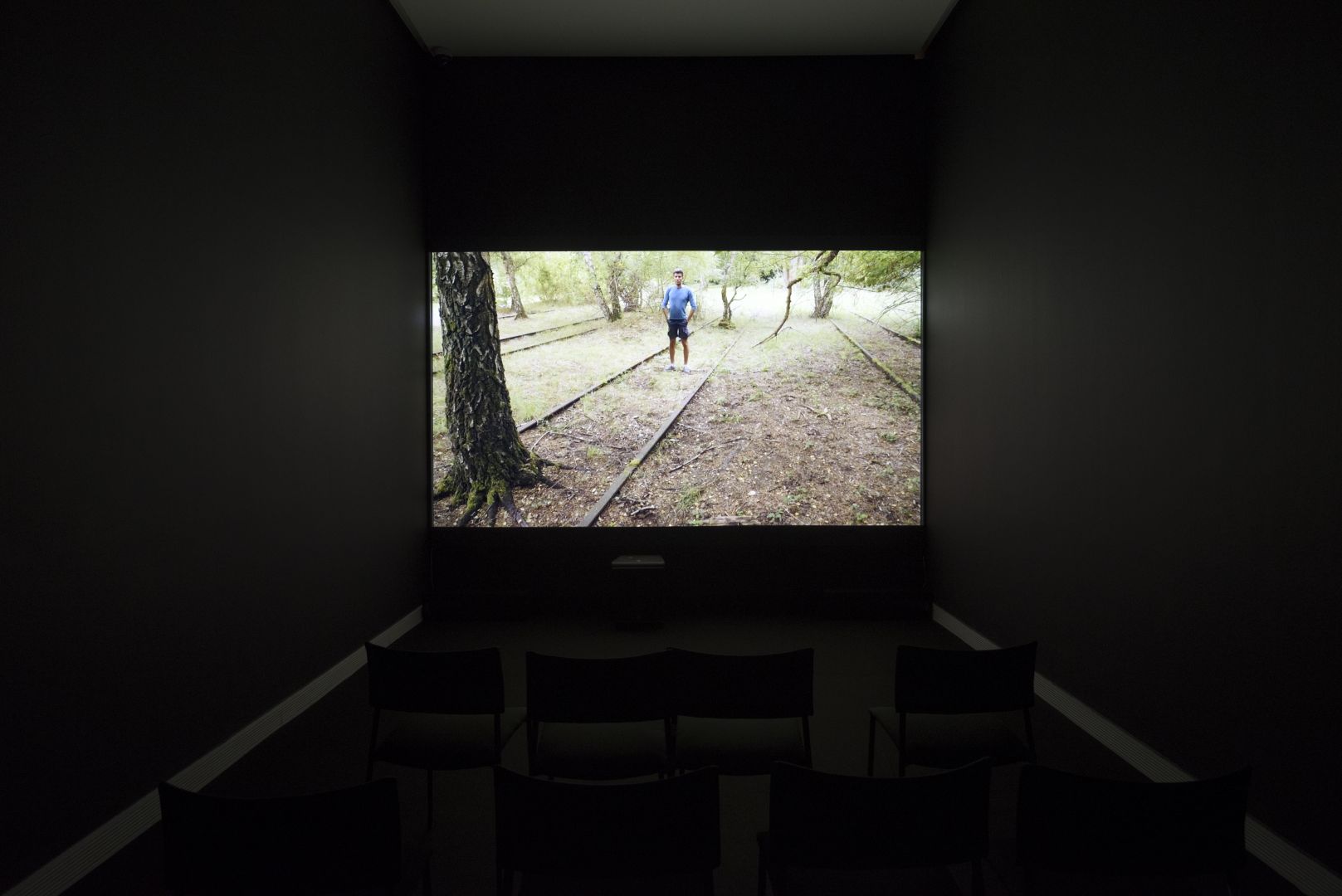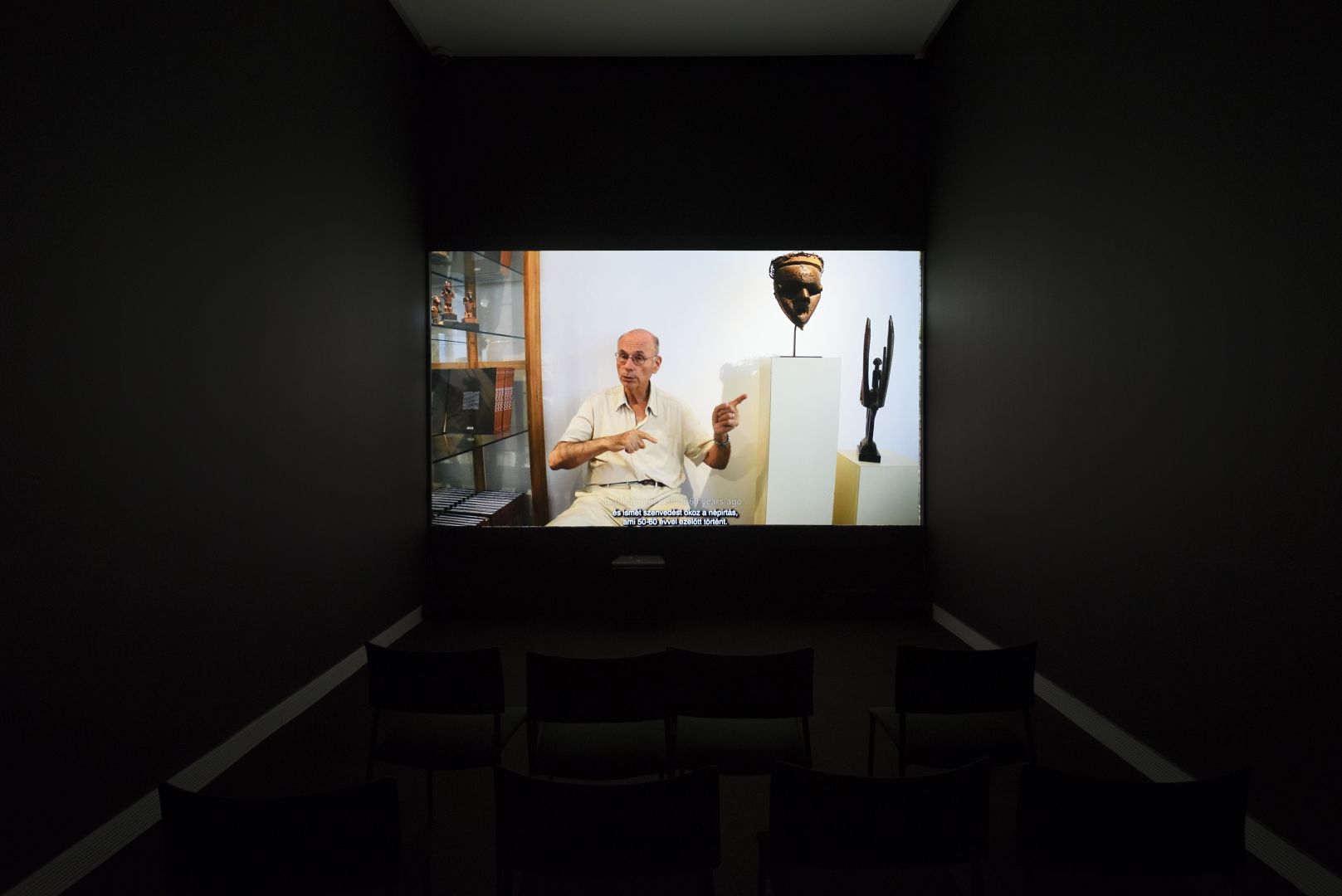Kader ATTIA
Reflecting Memory
Kader ATTIA
Reflecting Memory, 2016
colour video, sound; HD, 16:9; 45’56’’
Courtesy of the artist and Nagel Draxler Galerie
Kader Attia is represented by galleries Galleria Continua, Nagel Draxler, Krinzinger, Lehmann Maupin.
Photo: József ROSTA © Ludwig Museum – Museum of Contemporary Art
Kader Attia’s dual French-Algerian cultural background has served as a point of departure for his dynamic art practice, which reflects on the aesthetics and ethics of different cultures. The main focus of his research is the particular perspective of each society on its history and the evolution of collective memory in the light of tradition and modernity. Central to Kader Attia’s work is the reparative approach (Repair) as a constant factor of human nature. One of the most complex encounters of his intercultural and interdisciplinary approach is his video work Reflecting Memory, which was the main element of his exhibition at the Centre Pompidou, organised in the scope of the Marcel Duchamp Prize, which he won in 2016. The video focuses on the phantom limb syndrome in people with amputated limbs and the issue of phantom pain. In the film, Attia features scientists working to “repair” people who have undergone amputations: looking for answers on how to understand the phantom limb phenomenon, where it comes from and how to cure phantom pain. The video is ultimately a philosophical metaphor embedded in a documentary: what happens when the phenomenon of the phantom limb is transposed from the individual body to society as a whole, to the level of civilisations that have experienced traumas outside the norm. Attia interprets as yet unmourned civilizational traumas that remain in denial as social phantom pains, and in doing so, he subtly smuggles into his film the mirror box theory of neurobiologist Vilayanur Ramachandran, which uses the reflection of the whole limb to mourn the amputated limb of a patient. Attia makes this scientific discovery the visual leitmotif of the video, supporting his concept of reparation as a constant factor that defines the human being.
KÁLMÁN Borbála


